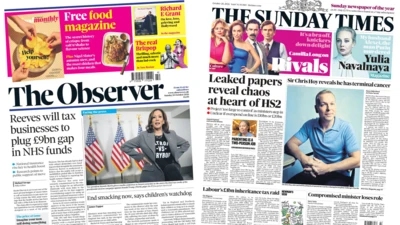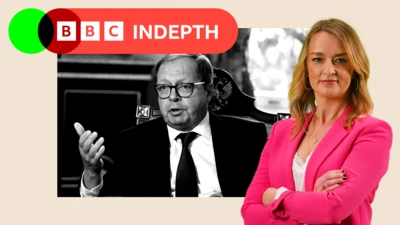We've updated our Privacy and Cookies Policy
We've made some important changes to our Privacy and Cookies Policy and we want you to know what this means for you and your data.
Zuckerberg: Facebook's mission is to 'connect the world'
Image source, Getty Images
- Author, Joe Miller
- Role, ΒιΆΉΤΌΕΔ News
Facebook boss Mark Zuckerberg has outlined plans to bring internet access, and the company's social network, to the developing world.
Speaking at Mobile World Congress in Barcelona, he said a "set of basic services" should be available to all.
Facebook is a member of Internet.org, a project launched last year that aims to put billions more people online.
One analyst told the ΒιΆΉΤΌΕΔ that Facebook's plans "can be seen from a completely commercial viewpoint".
Mr Zuckerberg said that once Facebook reached a billion users in 2012, the social network began to look at ways to engage more users around the world.
In his first ever appearance at Mobile World Congress, Mr Zuckerberg unveiled a set of projects in which Facebook, alongside Internet.org partners, will work on delivering internet access to emerging markets.
"Most people in the world don't have any internet access at all," he told the audience, adding that the "dramatic changes" to the industry were necessary for this to change.
The Silicon Valley firm has already teamed up with Ericsson, MediaTek, Nokia, Opera, Qualcomm and Samsung, among others, in an effort to lower the cost of mobile data worldwide.
Rwanda app
A pilot project announced on Monday will focus on bringing free online education to students in Rwanda.
SocialEDU will provide access to a "collaborative online education experience" through a bespoke app which connects to Facebook.
Airtel, a network operator in Africa, will provide free data to students using the app, while Nokia will supply cut-price handsets.
The government of Rwanda will also contribute to the project, helping to lower prices and refine the course materials.
Expanding revenues
Internet.org has also commissioned a survey from consultancy firm Deloitte on the value of expanding internet access in the developing world.
The report estimates that "closing the connectivity gap" could generate $2.2tn (Β£1.3tn) in additional GDP, and more than 140 million new jobs.
Image source, AFP
Speaking to the ΒιΆΉΤΌΕΔ, Mark Little, principal analyst at technology consultants Ovum, said that investing in emerging markets would "boost advertising revenue" for Facebook.
He said that a lack of connectivity, and the dominance of native social networks have held the social media giant back in some parts of the world.
Facebook's aim is to "make it easier for the world to share information", he added. "The more sharing that goes on, the more ads Facebook can sell."
Improving India
Mr Zuckerberg also announced a Facebook-led partnership with consumer goods company Unilever to conduct research into the lack of internet access in India.
Internet.org says that just 13% of the Indian population currently has access to the web, with very low connectivity rates in rural communities.
Educational and cultural factors limiting internet use will be examined, as will the widespread infrastructure and cost issues.
Chris Weasler, director of global connectivity at Facebook, said the move was all part of expanding the "global knowledge economy".
Top Stories
More to explore
Most read
Content is not available








